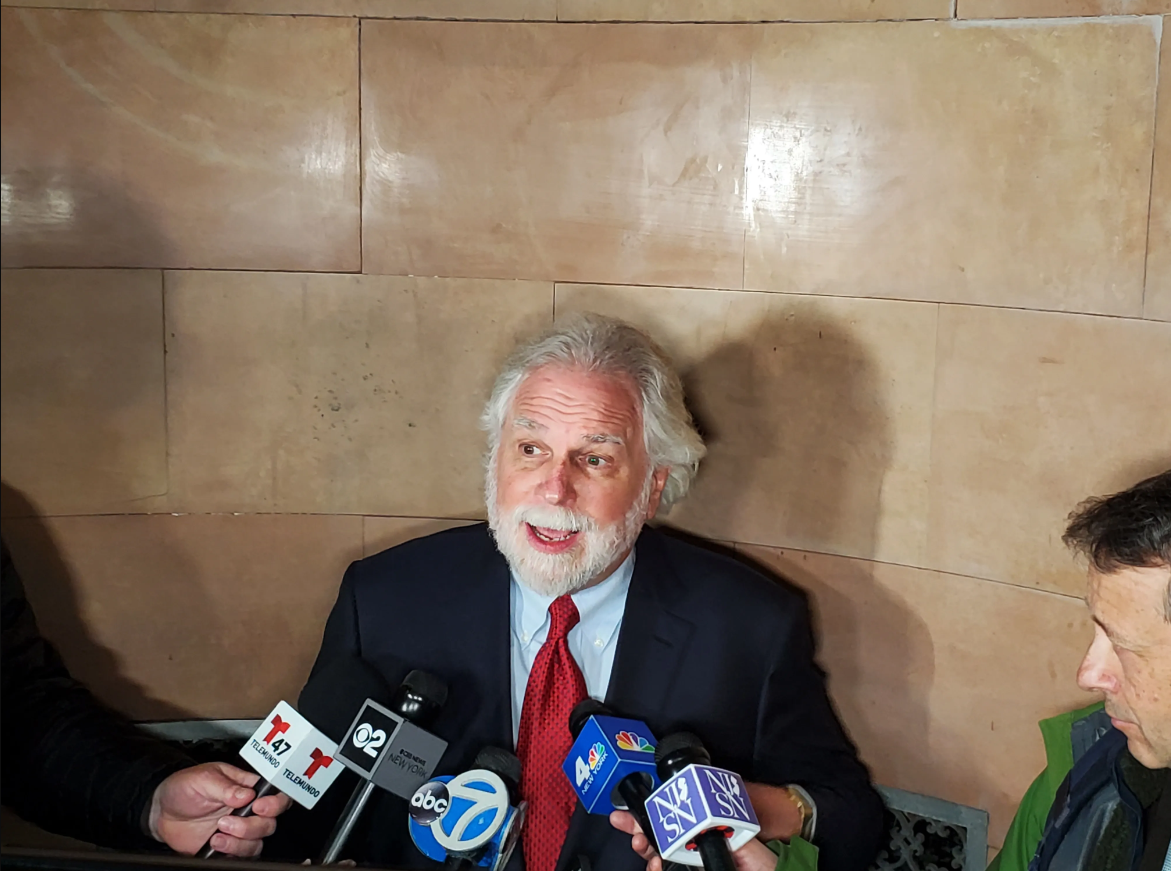OTTAWA – Brian Mulroney says he kept his business dealings with Karlheinz Schreiber secret because he feared a repetition of the accusations raised against him in the Airbus affair.
The former prime minister told a public inquiry Tuesday that the allegations of corruption levelled against him over Airbus and his subsequent legal battle left him wary of renewed attacks.
“The enormity of those events scarred me and my family for life,” he testified.
“And it explains my conduct in trying to keep private the private commercial transaction I entered into with Mr. Schreiber after I left office, so as to avoid the same kinds of deceitful and false purveying of information that had led to the original Airbus matter in the first place.”
Mulroney has admitted accepting $225,000 in cash-stuffed envelopes from Schreiber – after leaving office – to lobby foreign governments to buy German-designed armoured vehicles.
But Schreiber insists the deal was struck while Mulroney was still in office and it was to lobby the Canadian government, an arrangement that may have breached ethics rules.
Mulroney kept the money secret, not even declaring it on his taxes until 1999 – six years after the first envelope changed hands – when news of the payments threatened to leak out.
He repeated that there was nothing illegal or wrong about his relationship with Schreiber, a German-Canadian businessman and arms dealer. However, he added that he regrets the way he handled things and the poor documentation involved.
“Inadequately documented arrangements are inappropriate for former public office holders,” he said.
At the heart of the inquiry is the so-called Bear Head project, a proposal by the German firm Thyssen AG to set up a plant in Canada to build and export armoured military vehicles.
The original aim was to locate the plant in job-starved Cape Breton, but that later changed to Montreal. In both versions, the project drew sharp criticism from senior bureaucrats and split Mulroney’s cabinet along regional lines.
The deal never went ahead while Mulroney held power from 1984 to 1993. Schreiber says he paid the former prime minister $300,000 to lobby for it once he left office, in the hope of selling it to his Tory successor Kim Campbell.
Campbell has testified that Mulroney never mentioned the project to her, and in any event she soon lost power to Jean Chretien’s Liberals. But Schreiber kept paying anyway, handing over the cash-filled envelopes in a series of hotel-room meetings in 1993-94.
Schreiber has testified that he and Mulroney exchanged a number of friendly letters and chatty phone calls between 1984 and 1993.
But Mulroney said he doesn’t recall any such communications: “Not placing a call to him or receiving a call from him.”
He also said a friendly letter sent to Schreiber in August 1999 was a boiler-plate response generated by his staff over a machine signature.
“It looks to me like it was signed by the machine,” he testified.
And a 1993 letter to Schreiber was a generic draft sent to well-wishers, with a perfunctory, hand-written note added by Mulroney.
Mulroney also brushed off a claim that Schreiber directed $2 million to “Mr. Mulroney and his friends” after the government signed an understanding in principle about a proposal to build an arms plant in Nova Scotia.
Schreiber has said Frank Moores, a lobbyist and former Newfoundland premier who is now dead, put $500,000 of that money into a secret bank account called Frankfurt, which was earmarked for Mulroney.
“Preposterous,” Mulroney sputtered.
He said he knew nothing of the money or the account.
He also called the understanding “a letter of comfort” which did not commit the government to anything.
Mulroney said there were two Schreibers: one was a respected businessman who represented a major international corporation; the other a “fugitive from German justice.”
“We’re dealing with two different people, in my judgment, the Mr. Schreiber I had known and the man we see here today.”
The evidence to date has left little doubt Mulroney took a personal interest in Bear Head long before he left office.
He assigned two chiefs of staff to intervene in the file at various points – Derek Burney to referee a dispute between cabinet ministers in 1988 and Norman Spector to find out why public servants were opposing the project in 1990.
Documents also indicate Mulroney met several times with Schreiber, who was usually accompanied by Fred Doucet, a former Mulroney aide who hired on as a lobbyist for Bear Head within days of leaving the Prime Minister’s Office in 1988.
Other well-connected Tories, including Moores, Doucet’s brother Gerry, and former party backroomer Gary Ouellet also collected hefty lobbying fees.
There is evidence as well, from a forensic accounting report, that the cash Mulroney received after leaving office likely came from commissions Schreiber had collected as a middle-man in the 1988 sale of European-built Airbus jets to Air Canada.
There has been no evidence, however, that Mulroney knew the source of the funds. He sued for libel after the RCMP accused him in 1995 of taking kickbacks in the Airbus affair and won a $2.1-million settlement. No criminal charges were ever laid.
Mulroney has since come under fire over the testimony he gave in the libel suit, in which he claimed to know Schreiber only casually and made no mention of the money he took to lobby for Bear head.
Author William Kaplan, who first reported the Bear Head payments in 2003, has testified that Mulroney tried to talk him into keeping the story under wraps.
Mulroney had previously rejected the advice of long-time confidant Luc Lavoie, who says he urged the former prime minister make a pre-emptive public disclosure of his lobbying payments in 2000.















